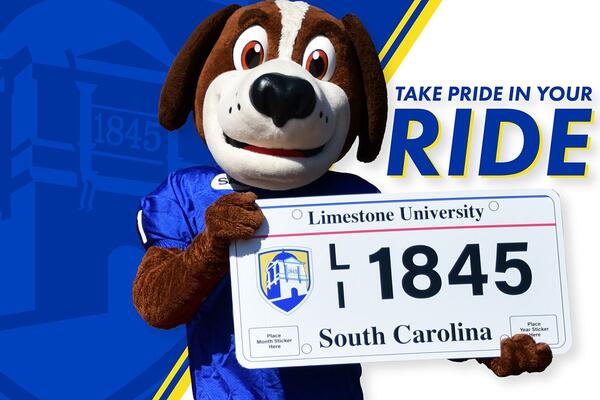March 25th, 2019
TOP 5 SCHOLARSHIP INTERVIEW TIPS

Are you preparing for scholarship interviews? No need to worry – we’ve got your back with these Top 5 Scholarship Interview tips. Are you interviewing for SC scholarships like the Palmetto Fellows, LIFE, or HOPE scholarships? Chances are you will be stacked up against many other candidates with resumes as long as yours. Make sure that you stand out as you pursue these prestigious opportunities for financing your education.
Being well prepared is a difference maker when it comes to being a finalist for a scholarship or being dismissed. Charm the committee, ace the interview, and get in the running for the Carolina Cup of academia!
1) Dress like you want to win a prestigious scholarship.
It may not seem important, but showing up to your interview dressed well will make a huge difference. Perception is everything, and you don’t want to be the candidate who shows up in your favorite pair of crocs. Remember, this is a scholarship interview. If you look like you would rather be on your couch than telling the committee why you should be chosen, then you might not make the cut.
Most scholarship interviews will require that you dress professionally, so consider your closet and make sure you have something appropriate to wear. If not, don’t worry. You don’t need to spend a fortune on new clothes! Stores like Marshalls, T.J. Maxx, Ross, and Walmart have appropriate shirts, pants, and shoes for such an occasion. It may seem silly, but having a professional appearance can make a big difference when you’re interviewing for something as serious as a scholarship opportunity.
2) Don’t forget to be yourself.
There is only one you in the world, so why be anyone else? Being authentic will go a long way with the interviewers and even with other candidates that you meet. Everyone can spot someone who is trying too hard to act like someone they aren’t, and you don’t want to be remembered as the person who tried to be like everyone else. Own your interests, passions, and activities. Talk about the things that make you stand out - academic or athletic achievements, service or leadership experience, and special interests. These qualities and successes make you unique.
If you’ve completed a senior research project on a topic that you’re passionate about, talk about it with the interview committee! If you enjoy acting in theatre productions at your high school, mention being involved with the campus theatre department. Letting your personality shine through will help differentiate you from the other candidates. It will also make you memorable for the right reasons!
3) Make sure that you do your research.
You should know enough about the college you are interviewing with to be able to tell your interviewers exactly what clubs, activities, and organizations that you’d like to be involved in once you attend their school. Committees will be impressed when you can speak directly to the things that their campus offers, rather than generalities that exist everywhere. It’s the difference between saying “I’d love to be involved with Campus Civitan” and “I think I would get involved with service activities.”
During your interview experience, it’s likely that you’ll be asked why you want to attend that school. Your answer should be specific enough that your interviewers know you are seriously interested, not scholarship shopping. Know small things like the school’s student-faculty ratio, their mascot, and whether the basketball team has had a good season. Even if you don’t use that information in your interview, things like that can be good conversation topics with other people throughout the day.
4) Confidence is key.
Leading up to your interview, make a list of questions you think they may ask. Get advice from teachers, mentors, friends, or your parents and practice what to say. Think about your answers. If someone asks why you want to be a finance major, don’t say it’s because you like money. Instead, talk about your interests in the stock market, accounting, or the financial sector. Not only will this type of answer allow you to speak more about your interests, but it will convey your confidence in choosing a major that’s the right fit for you. Make sure that you prepare thoroughly and answer questions eloquently, concisely, and positively.
Having an interview game plan will help you feel more prepared when the time comes. However, being confident does not mean thinking that you’re better than the other candidates and that you’re a shoo-in for the top award. The committee members are not there to ask you hard questions, make you feel bad, or scare you. They simply want to get to know you and learn about why you want to attend their school. At the beginning of your interview, greet everyone with a firm handshake. Introduce yourself, and remember the names of the folks interviewing you. Make a mental note of the names of each committee member. Remembering names conveys to them that you are sincere and focused on the moment of your introductions. If you remember them, they’ll remember you.
5) Ask questions.
Many interview committees will ask if you have any questions for them. Having at least one or two questions shows that you are actively engaged and interested. If members of the committee attended the school where you are interviewing, ask them why they chose that college. Ask faculty and staff members what drew them to the school. If you have the opportunity to speak with current students, ask what they enjoy doing at the college! The people you interact with during your interview are members of the campus community, and they should be able to speak comfortably about their experiences. Asking questions builds rapport. You’ll also be remembered as a great conversationalist rather than the student who had nothing to say.
Bonus Tip 6) Remember your manners.
Remembering your manners seems like common sense, but when you’re preoccupied with what the interview committee is going to ask and what you’re going to say, it’s possible to forget basic manners. When it’s over, scoot your chair in and thank the committee for their time. Leave with a firm handshake and a positive attitude. Afterward, follow up with thank you notes to each of the committee members. Writing thank you notes may not impact your interview results, but it is a kind gesture to let the committee know you appreciated the time they took out of their schedules to get to know you.
I know what you’re thinking. All of these things are easier said than done, right? Remember that these tips are just that – pointers designed to help you be your best self. While it may seem like the interviewers are trying to trick you into saying the wrong thing or that the other candidates are much more qualified, don’t forget to take a look at where you’re standing. You are in the same room with the other candidates - and you were asked to interview too. There are loads of scholarship opportunities out there, and you were handpicked to interview for them!
Limestone College offers a number of institutional scholarships including the Endowed and Fine Arts scholarships. Find out more about scholarships when you speak with one of our admissions experts today.


